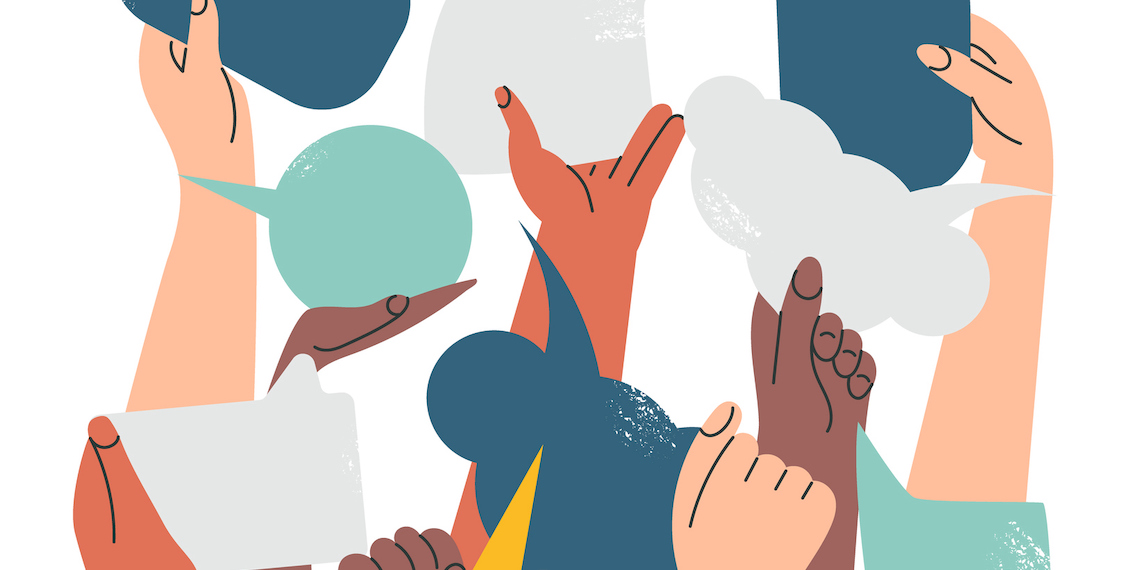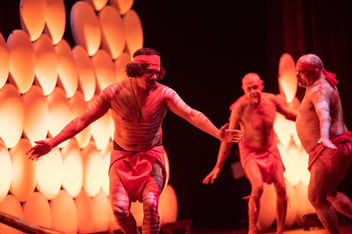Education key to nurturing decisions on the Voice to Parliament

As the referendum on the Voice to Parliament draws closer, Reconciliation Australia is calling on the Reconciliation Action Plan (RAP) network to help educate employees and stakeholders on the importance of what is set to be a historic moment in the reconciliation journey.
On 21 February, Reconciliation Australia’s RAP Program General Manager Peter Morris hosted a webinar with RAP partners to discuss recent data and tools to help organisations engage in important discussions and contribute to awareness on the Voice.
“We are at a very interesting moment as a country for our reconciliation movement. There is a mix of hope and apprehension. We recently reflected on 15 years since the historic apology, which came much too long after the 1997 Bringing Them Home report following the inquiry into the Stolen Generations,” Morris said.
“There are going to be some really challenging and difficult conversations ahead of us in the weeks and months to come – as a country and as individuals within our organisations.
“We are navigating increased visibility within the reconciliation movement at the moment and there is an opportunity here to engage and educate stakeholders, but also commit to sustained transformation.”
In light of this increased visibility and the importance of the upcoming referendum, Reconciliation Australia is challenging all RAP partners to educate employees and stakeholders so that all people are able to make an informed decision.
“We must seize the opportunity and make a plan to educate our stakeholders, but we must also reflect on the governance of our organisations, and how we honour and include the voices of First Nations peoples to promote transformation, regardless of the result of the referendum,” he said.
“This is definitely not about telling anyone how to vote or saying there is only one way to think about these issues. It’s about the fact that information increases comfort for everyone as we understand the nature of what has been proposed, and as we get closer to a final question and a date for the referendum.
“Our ambition for this referendum is ensuring everybody has the information they need to be comfortable and confident about the decision they make.”
Participation, trust, truth-telling
Reconciliation Australia’s advice to the RAP network about engagement in the lead up to the referendum has been informed by the latest Workplace RAP Barometer – a survey of the entire RAP network conducted every two years that delves into stakeholders’ attitudes around reconciliation.
“We know that RAP stakeholders are ready for this conversation. They are telling us they want to participate. We also know that education has a big impact,” Morris said.
“If there are leaders within businesses that are concerned about engaging education around the referendum, we can reassure them that their RAP stakeholders are ready. They want this information.
Morris said the barometer data has offered three initial findings that will be key to helping RAP partners navigate important conversations and education plans ahead of the referendum.
“The first is that participation drives understanding. As you think about activities that your organisation might undertake to educate people about the Voice to Parliament referendum, it is important to provide opportunities for people to engage,” he said.
“The second is that education strengthens support. Engaging RAP employees and increasing their understanding of these issues enables support. RAP employees are much more likely than the general population to believe that the relationship with First Nations peoples is very important, not just somewhat important.”
The Workplace RAP Barometer also reflected findings around how awareness of history helps to address past injustices, Morris said.
“There has been a trajectory over the past eight years, with a change in the hearts and minds of the employees of RAP organisations: 71% of the employees of RAP organisations, compared to 40% of the broader population, agree that it’s important to learn about the past issues of European colonisation and government policy for First Nations Australians,” he said.
“Employees of RAP organisations have a stronger understanding of key facts about Australia’s colonial past, including the Frontier Wars, through to when Aboriginal and Torres Strait Islander people had access to voting rights, and policies around child removal.
“The broader population says we should forgive and move on. But the RAP network says we need to rectify the issues of the past to move on effectively. And so the importance of truth-telling has also been an interesting finding from the results.”
Taking action
Reconciliation Australia is proposing key actions for RAP partners to take in the months leading up to the referendum, with the first and most important being to plan for an appropriate education strategy.
“The RAP network has a diverse array of over 2300 organisations that directly impact over four million Australians every day. That sphere of influence has a huge opportunity to powerfully impact the education of the Australian public about the Voice,” Morris said.
“The key message is to make a plan to educate. Have an internal conversation and discuss what’s appropriate for your organisation’s stage in the reconciliation journey.
“Critically, we do not want support for or education about the referendum for the Voice to be tick-a-box. This has to be about sustained institutional change.
“And so while we want you to educate your stakeholders, we also want RAP partners to reflect on their own governance, too.”
Morris said Reconciliation Australia’s RAP Voice Education Network is an excellent tool to help RAP partners work through their plans to engage and educate, and there are also specific opt-in commitments for organisations seeking to do more to support improvements in governance.
“Our RAP Voice Education Network is a hub of information, with extra features being shared in coming weeks as we get closer to the time when we have a date and question for the referendum,” he said.
“We have also created some opt-in commitments for RAP organisations to reflect and act on. It is an invitation to every RAP organisation to have an internal conversation about educating stakeholders and reflecting on governance.”
Finally, Morris encourages all individuals to get involved.
“This is a national conversation. All of us who have the responsibility and privilege of voting in this referendum, we need to educate ourselves,” he said.
“But we also have the opportunity to hold the mirror up to our organisations and ask how we are including the voices of Aboriginal and Torres Strait Islander peoples, and shaping the strategy and the vision for how we do our work.
“This year will be a really special moment for many of us. It will be a special time. It is really important for us to reflect both individually and in the context of our work.”



